 If you are new to WordPress, make sure you read our introduction to WordPress themes. It explains what WP themes are and how using a theme can save business owners time and money.
If you are new to WordPress, make sure you read our introduction to WordPress themes. It explains what WP themes are and how using a theme can save business owners time and money.
This step-by-step tutorial will show you how to easily upgrade your theme in the dashboard.
Updating Your WordPress Theme – Best Practices Checklist
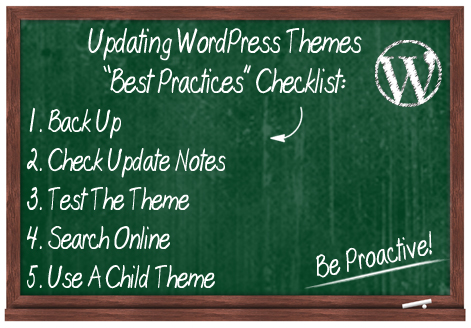
Before updating your WordPress themes, we recommend going through the “best practices” checklist below.
1. Back Up Your Website Fully
Backing up your website before making any updates to your site is essential. This way, if things don’t go as planned, you can always restore.
If you don’t want to perform manual backups, there are many WordPress plugins you can use. You can read about a WordPress backup plugin that can automate your backup process here:
2. Check The Theme Update Notes
When WordPress upgrades its software to a new version, this can affect the functionality of certain themes. Depending on the theme you have installed, there may be a changelog file included with an update which provides an overview of new features, improvements, bug fixes or any other information pertaining to the new version.
If the theme changes seem irrelevant or unimportant, you can skip the update. Otherwise, you should update.
3. Test Your Theme
If you can, it’s a good idea to check the theme before installing it on your site.
![]()
Typically, web service providers will set up a test site where they can test the latest version of the theme, track bugs and verify that the new theme version doesn’t conflict with any existing plugins or settings before installing it on a live site.
If you’re managing your own website, you can set up a test WordPress site on a subdomain or a separate domain name with the same configuration settings (e.g. plugins) and test new theme versions on your test site before applying it to your main site.
4. Search Online
Before updating your theme, it’s a good idea to search online and see if anyone has reported any serious problems with the new theme version.
You can enter the theme name and version into Google, and search the theme developer’s support forum (many developers provide forums for premium WordPress themes, and even for some free plugins).
5. Use Child Themes For Heavily Customized Themes
If you have made extensive customizations to your existing theme files, updating your theme may result in your custom modifications being overwritten. To prevent losing your theme modifications, therefore, we recommend you learn how to create “child themes”.
A WordPress child theme is a theme that inherits the functionality of another theme, called the parent theme, and allows you to modify, or add to, the functionality of the parent theme. When you update the “parent theme”, all modifications get preserved through the “child theme.”
If you plan to customize your theme files, then we recommend becoming familiar with child themes, especially if you plan on using a theme that gets regularly updated. You can learn more about child themes by searching online, or just visit the WordPress Codex child theme page here:
![]()
As you will see below, the actual process of updating a WordPress theme is not complicated at all … a few simple clicks and you’re done! What can feel slightly bothersome is the preparation involved prior to upgrading.
Many people don’t upgrade their WordPress themes regularly, while many upgrade without going through all of the steps listed in the section above. As mentioned earlier, the above are recommended “best practice” methods to help you avoid problems. Ultimately, as a website owner, it is solely your responsibility to protect your digital properties.
Upgrading A Theme In WordPress – Step-By-Step Tutorial
Upgrading your WP theme in your dashboard is easy.
Log into your WordPress administration area …
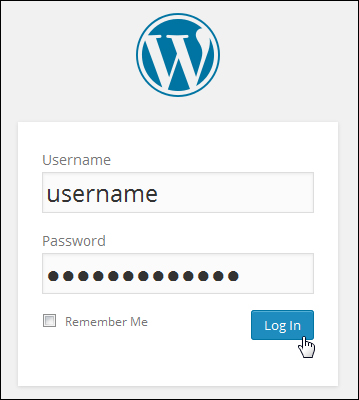
Depending on what theme(s) you have installed on your site, you may receive an occasional notification in your dashboard that new theme versions are available and require updating …
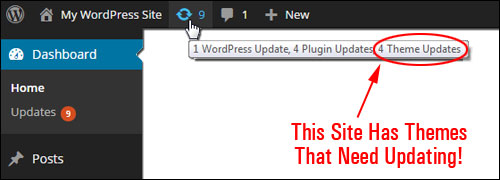
Updating themes in your WP dashboard is quite a simple process. You can update your themes via the “Themes” screen, or the “Updates” screen.
Updating WordPress Themes From The “Themes” Page
To see which themes need updating, go to your Themes page.
Choose Appearance > Themes in your WordPress admin menu …
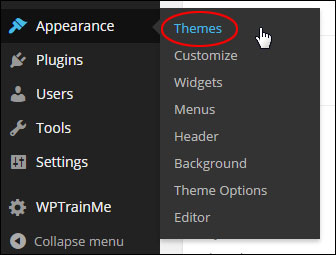
This brings you to the “Themes” screen …
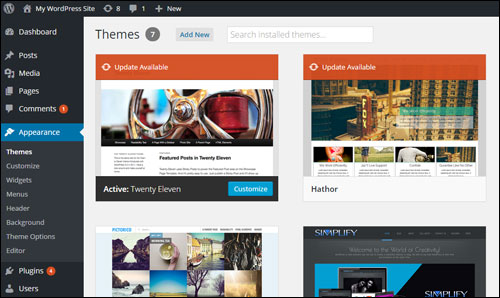
WordPress Themes with new versions display an “Update Available” message over the theme’s thumbnail image …
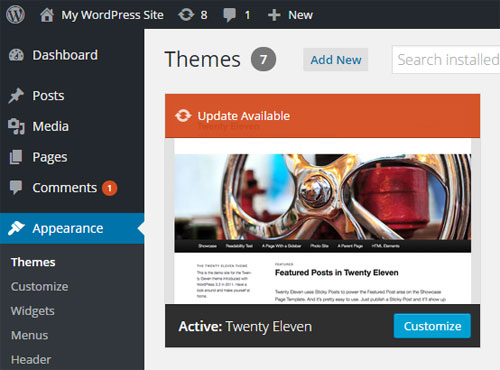
Locate the theme you want to update and click on the “Update Available” alert.
When the theme details window opens up, click on update now …
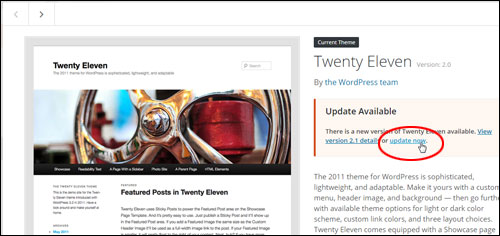
WordPress will automatically update the theme …
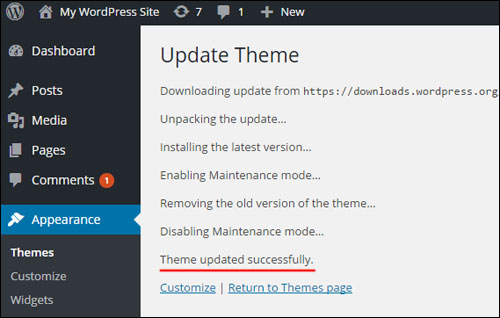
Your theme is now updated …
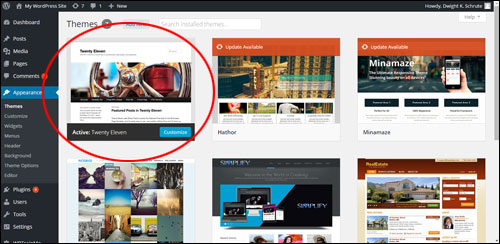
Repeat the process described above to update all of your outdated themes, or use the method below to upgrade multiple themes.
Updating Your Site Themes Using The “Updates” Page
Update your WordPress themes using the “Updates” area as shown below:
To view all themes installed in your site that need updating, click on Dashboard > Updates …
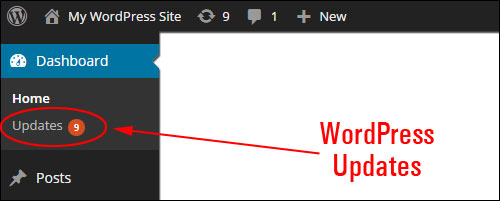
This opens up the Updates screen. Scroll down to the Themes section …
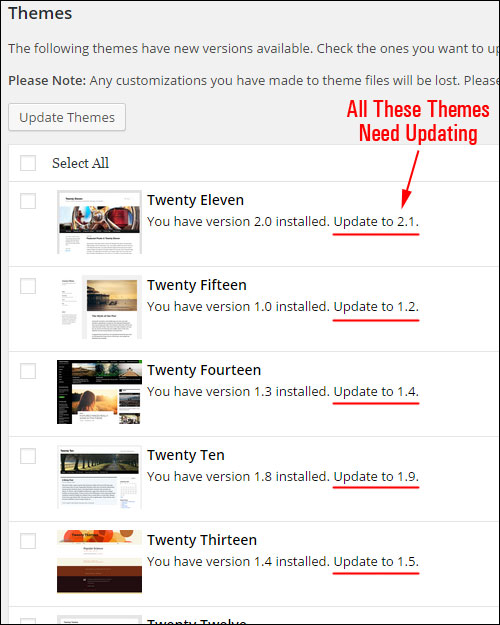
Select all the themes you want to update and click on Update Themes to complete the bulk update process …
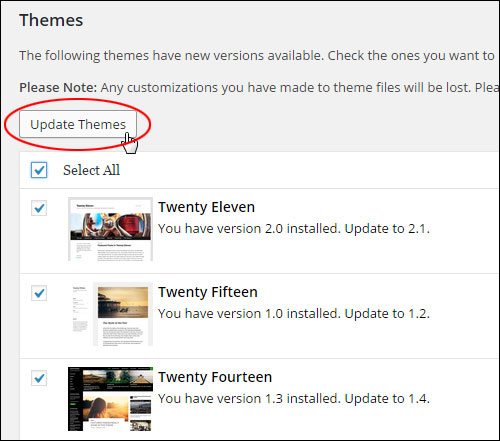
WordPress automatically updates all of your selected themes …
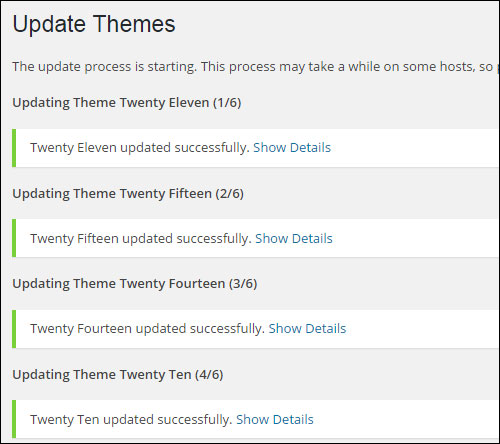
Congratulations! Now you know how to update your themes from the WP dashboard.
***
"Your training is the best in the world! It is simple, yet detailed, direct, understandable, memorable, and complete." Andrea Adams, FinancialJourney.org